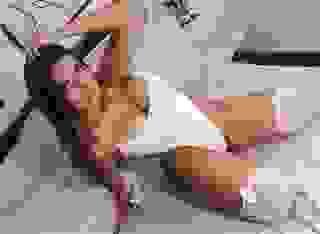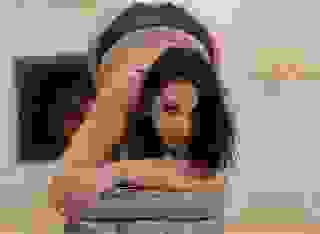- Novels and Novellas
- Battle for the Known Unknown Ch. 18
Note: You can change font size, font face, and turn on dark mode by clicking the "A" icon tab in the Story Info Box.
You can temporarily switch back to a Classic Literotica® experience during our ongoing public Beta testing. Please consider leaving feedback on issues you experience or suggest improvements.
Click hereChapter Eighteen
Hygiea - 3751 C.E.
Paul and Beatrice were no longer welcome on board the Ulysses after the explosion had wrecked so much of the space ship. As soon as the captain was made aware that the target of the explosion was his two Kuiper Belt passengers he could no longer tolerate their continued presence on his ship. They were evidently a security risk of the first magnitude to not only themselves but everyone else besides. Furthermore, as fully a quarter of the ship was now deemed unsuitable for continued habitation, there were no available spare rooms. Most passengers from the Ulysses' affected levels were obliged to double up with others who'd been more fortunate. It was an unacceptable risk to other passengers that they should share their living space with two known security risks.
Nevertheless, as the couple couldn't be ejected into empty space, they were obliged to spend the remainder of this leg of the journey in the company of their minders in a shuttle tethered to the space ship. It was attached at some distance by nanocarbon cables as the Ulysses hurtled towards the Hygiea asteroid: the nearest place where emergency repairs could be carried out.
"You won't be on the Ulysses when it resumes its voyage to Earth," Lieutenant Korolyov informed them. "We'll have to commission alternative transport, but I warn you it won't be nearly as luxurious as you've become accustomed to."
"Was accustomed to," Paul corrected him.
The space shuttle wasn't designed to be luxurious accommodation. Its one tiny cabin was now occupied not only by Paul and Beatrice but by all the security officers from the Interplanetary Union assigned to them. The space shuttle was designed to transport passengers for at most a few days to destinations that weren't precisely on the Ulysses' route. Even with only half a dozen passengers, the space was cramped and there were few of the distractions accessible on the mother ship.
A further source of discomfort was that the artificial gravity generated by the vehicle's rapid rotation was prone to shut down both abruptly and arbitrarily. The novelty of momentary weightlessness soon palled on Paul who would gladly return to more stable conditions.
"We don't believe that Erika was a willing suicide bomber," said the lieutenant when Beatrice asked for an update on what was known about the explosion. "She had regenerative cranial surgery relatively recently and it's believed that a dormant explosive device was inserted into her brain. Our officers are interrogating the surgeons who carried out the operation, but as you know it is very easy to introduce such devices into a person's body. There's normally no evidence that it's there at all and very rarely that you'd see the kind of symptoms that you observed in Erika."
"She did seem very unwell," said Beatrice.
"I dare say," admitted the lieutenant. "But it is unusual for such implants to betray any visible evidence. It might just have been a timely coincidence. All the same, it was fortunate for you that the explosion took place when it did. There was no other occasion when Erika wasn't in close proximity to either of you."
Paul had never lived in such cramped conditions before. The bathroom was so tiny that there was no Jacuzzi or even a bath, but only a shower that responded sluggishly to Paul's instructions for jet speed or temperature. When he could, he distracted himself by making love to his adoring wife although this became disconcerting when the gravity dropped and the couple floated gradually towards the ceiling. Paul also got to know his minders very well. There was no one else to talk to other than Beatrice. None of them were told to why they'd been assigned to guard the newlyweds or who was so determined to kill them.
It was nearly a month until Paul could see the Hygiea asteroid through the ship's monitors and a further month until he could see it with his eyes through the shuttle's portals. It certainly wasn't a pretty asteroid. It was irregular in shape and brightly lit by searchlights that swept from horizon to horizon. The asteroid was encircled by ships and colonies of which none was large enough to accommodate even a hundred thousand people.
Hygiea was an asteroid at permanent war with its neighbours in a segment of the Asteroid Belt that hadn't known a single year of peace since its foundation in the twenty-third century. None of Paul's minders were sure which colonies or asteroids were at war with Hygiea. Nevertheless, despite being preoccupied with the annihilation of its neighbours, Hygiea, like the majority of nations in the Asteroid Belt, was a member of the Interplanetary Union.
As the captain had no wish to put his crew at risk, it was fortunate that one of Lieutenant Korolyov's officers was a qualified pilot and could safely navigate the untethered shuttle to dock at Hygiea's spaceport. This was a journey in which the passengers only experienced quarter standard gravity and when the shuttle docked were then subject only to the Asteroid's very feeble gravity.
The Republic of Hygiea was no more enthusiastic about having to shelter Paul and Beatrice than the Space Ship Ulysses, but its relations with the Interplanetary Union were too fragile for its government to turn the visitors away. There was no welcome committee to receive the couple, which pleased Paul but visibly irritated the lieutenant.
For the next month or so, Paul's home was in the Triumph dome on Hygiea's surface ninety kilometres from the spaceport. The journey across the Asteroid's bleak and cratered crust was on the first maglev train that Paul had ever ridden on. This was along a tube through whose glass walls Paul could see many settlements under the dark starlit sky. The Sun was less distant but still appeared to be no more than half the size it would on Earth.
This was the first time Paul had ever been on the surface of an object in space rather than inside. He felt distinctly uncomfortable with the notion that there was nothing but black empty sky above his head. This wasn't the only source of discomfort. The gravity on Hygiea was so weak that the most it could do was anchor him to the ground. He was fitted with heavy leaden boots that compensated for the awkwardness of his step and made walking as nearly natural as possible on an asteroid where any object he dropped from his hand took nearly a minute to eventually settle on the ground.
He was also made aware that this was an asteroid in constant threat of hostile bombardment. There were signs to that affect displayed on the walls of the maglev train's compartment and in every corridor and chamber he walked through. The robotic guards that stood to attention in every open space were as immobile as statues but were armed to defend the citizens against an invading force. A sweep of huge spotlights criss-crossed the train's path as it careered across the mostly empty plain.
How could people live like this? Paul wondered. Low gravity. Empty sky above their heads. And the constant reminder that they were at risk at any time from antimatter missiles aimed at them from space.
Hygiea was exceptionally short on hotel accommodation. Normally, the only foreign visitors were diplomats, ambassadors and scientists. No one would ever choose to visit the Asteroid for pleasure. Most historic monuments of note had been destroyed during the many centuries of war. Everything of natural beauty was now employed as a military installation. Beatrice and Paul had to make do in very substandard lodgings, as did the rest of Lieutenant Korolyov's party. The one bedroom and attached kitchenette and bathroom in their fourth floor apartment wasn't much better than what they'd got used to on the space shuttle.
The couple had little to do except make love and when not so engaged to divert themselves with movies. They occasionally ventured into the colony beyond, but it was a dismal place that just about served its citizens' basic requirements and not much else.
The Hygiean national dress was principally designed for life in low gravity. The heavy padded outfits and massive boots made everyone appear to be very chunky, although it kept them rooted to the ground while everything around fell leisurely downwards. Hygiean citizens made an almost comical sight as they stepped so lightly while being hardly weighed down at all by their bulky outfits. The only aspect of Hygiean dress that wasn't dourly utilitarian was their long hair, which gave them a bizarrely romantic likeness on account of the way it unhurriedly cascaded over their shoulders.
The chief distraction available to Hygiean citizens was sport and this was specially adapted for the low gravity. It was strange indeed to watch a game of football where the hard metallic ball arched so high but fell so very slowly to the ground where there was plenty of time for the players to intercept it. It was equally odd to watch a game of baseball where the ball followed a tremendous trajectory when it was hit but could scarcely avoid being caught by the time it arrived near the ground.
The Hygieans were wary of Paul and Beatrice who could never be mistaken for natives however much they dressed appropriately for life on the Asteroid. Paul was very clumsy and it was only the fact that he fell so slowly that his many missteps didn't cause him injury. Beatrice acclimatised herself rather more easily to the conditions, but she didn't observe the expected deference to rank that was natural to the Hygieans. The couple soon restricted their outings to the very few remaining tourist attractions that were worth visiting.
Besides slow motion sport, the only other things of interest were the farms, forests and lakes that supplemented the life support systems. It was fascinating to see trees that grew so tall and unmannerly in the low gravity and the animals that had adapted themselves to the alien conditions. Squirrels had learnt to leap across distances between trees that were several tens of metres apart. The fish jumping out of the lake's surface stayed a very long time in the air before they eventually fell back into the water and were therefore easy prey to the gently gliding seagulls.
The more Paul saw of this world the more he wished he was home on. "I hope we don't have to stay here too long," he remarked after he'd made love with his wife for perhaps the fifth time that day. "I'm getting tired of having to wear such a heavy suit. I'd much rather wear something less cumbersome."
"Me too," said Beatrice, who looked very odd indeed in such restrictive clothing. She could barely wait to tear off every scrap and cavort naked on their connubial bed.
Making love was a distraction, but it was also very weird. Beatrice almost had to hold Paul down when he rested on top of his wife,. And when Paul ejaculated anywhere but inside Beatrice, the semen took a very long time until it eventually landed on Beatrice's fair skin.
"If I have to live on the surface of one of the Sun's satellites," remarked Paul reflectively, "I'd much prefer a more interesting view. Hygiea's nothing but black rock and dust. I thought having a starscape and a view of the Sun would be compensation, but it does get rather boring after a while."
"You should try and appreciate its beauty more," Beatrice countered. "At least you can see the sky. You can't see anything on Venus, even though it has very close to standard gravity,. It's nothing but thick viscous cloud. Here you can see all the constellations and even..."
Whatever else it might have been that Beatrice could claim to see was lost in an echoing noise that filled the chamber and was eerily like the explosion they'd heard on the Ulysses but one which boomed at a much lower frequency.
This was followed by another loud noise. And then another. And another.
"Fuck!" shouted Paul more in despair than anger. "Who or what has got it in for me?"
"I don't think it's just you," said Beatrice. "Can't you hear the air-raid sirens?"
There was a piercing shrill note in the midst of the dull thud of distant explosions. It was at a very high and urgent pitch.
"We'd better run to the shelters," said Beatrice. "I'm sure this is one of those air raids we've been drilled for."
Paul just about remembered the exercises he'd attended not long after they'd arrived to which he'd paid as little attention as all the others that had accompanied every one of his various space flights since he'd left Godwin. Fortunately, Beatrice memory was rather better. She helped Paul into the bulky space suit that would protect him against a breach in the dome's space shield before she slipped into her own. Although the suits were cumbersome and ungainly, they were no obstacle to progress in the low gravity. Paul and Beatrice skipped and bounced out of their apartment and down the corridor to the escalators that would take them deep beneath the Asteroid's surface to the awaiting emergency shelters.
Many other citizens were impatiently waiting at the escalators when they arrived. However, rather than join them herself, Beatrice laid a reassuring hand on Paul's shoulder.
"You go down by yourself," she said. "I'll join you later."
"What do you mean?" asked an alarmed Paul. He wasn't sure whether he was more troubled at the idea of Beatrice being left behind or of him being left alone.
"You must remember that I used to work for Emergency Rescue Services on Venus," said Beatrice. "There are lives at risk and I have the skills needed to save them. Don't worry. I'll be back with you again soon enough."
With those words, she strode off towards the stairs which she clambered down while Paul shuffled into the escalator with a dozen calm and stoically resigned Hygiean citizens. As the doors slid shut behind him all he was left with was the image of her heavily space-suited figure as she bounded towards the rarely used steps.
This memory stayed with Paul as the escalator swiftly descended more than a kilometre beneath the Asteroid's surface into the caverns where the majority of Hygiea's citizens lived. It remained with him for several hours more as he sat on one of the many sofas and armchairs that filled the air-raid shelter's massive caverns. He was accompanied by thousands of other people who appeared to be more excited than dismayed by the destruction raining down on their homes on the Asteroid's surface. The impression he gathered from his short snatches of conversation with those who spoke English was that such air-raids were relatively infrequent. An offensive such as this would normally have been intercepted long before it had a chance to penetrate Hygiea's elaborate defences. The fact that this air-raid had succeeded where most failed implied that the enemy Parthenopeian forces had identified a weakness in Hygiea's defence system and there was furious debate as to how this could have happened. Nevertheless, Paul's interest in the technicalities of defence against missiles that could be cloaked, disguised as civilian craft or simply launched at an illegally high acceleration waned after several hours. He was distracted by the holographic displays that gave a continually updated account of the damage sustained, the number of casualties and Hygeia's success rate at deflecting missiles. Like the citizens gathered around Paul, the excited commentators took every opportunity to speculate on the precise reason why the missiles hadn't been intercepted sooner.
Paul was distressed by Beatrice's continued absence. He wasn't sure whether this was because he was anxious about her welfare or because he'd spent so little time apart from her and had lost the ability to enjoy his own company. It was undeniably odd of her to rush off like that into the midst of an air-raid. Not just odd, but foolhardy and reckless. No incoming missile would make allowance for Beatrice however well qualified she was as an Emergency Rescue Officer.
The news bulletins carried many stories of human interest, particularly of personal bravery and good fortune. It wouldn't be good for morale if the only stories were concerned with death and destruction, although this must have been the principal result of the air-raid. It was with a growing sense of apprehension that Paul came to realise that the story most commented on was of a brave Emergency Rescue worker from the Kuiper Belt who was responsible for an extraordinary number of acts of courage and to whom many adults and several small children owed their lives.
While the commentators speculated on the identity of this mystery woman who'd saved the life of people who would otherwise have been crushed by debris, frozen to death or suffocated, Paul became increasingly convinced that this wonder woman and saviour to so many could only be his remarkable wife. Although he'd enjoyed so many hours of the greatest intimacy with her, she was still almost as much a mystery to him as she was to Hygiea's excited media. How could anyone be so perfect? What had Paul ever done to deserve such a beautiful, clever and now courageous wife?
Paul's suspicions were confirmed when the crisis had subsided enough for an interviewer to speak to the undoubted Heroine of the Hour.
The woman who removed the helmet from her head and shook free the long blonde hair that cascaded slowly onto her shoulders could only be Beatrice.
She answered the reporter's questions with her characteristic modesty and charm. She gave little away about herself beyond the fact that she was staying on Hygiea with her husband who, Paul was gratified to learn, she adored. She also claimed that she'd found the people of Hygiea friendly and forthcoming, which most certainly hadn't been Paul's experience so far. She gave as detailed account as the questions required of her various heroic rescues. The small child that would have died had Beatrice not severed her leg from under the fallen masonry. The family she rescued from the burning flames of their house and then returned to rescue their pet cat, about which she was visibly affected. The fellow Emergency Rescue crews who she also helped save when a tall tower collapsed about them. She was diffident about her many achievements and accorded most of her admiration and respect to Hygiea's courageous firefighters.
When Paul eventually got to see Beatrice again, well into the following day, she was a great deal less forthcoming about her heroic adventures or indeed about wonderful people of Hygiea. She was flushed with excitement and within seconds of re-entering their bedroom, where Paul had spent many lonely hours since the all-clear alarm was raised, she tugged off Paul's leaden trousers and padded shirt and vigorously applied her tongue and mouth to a penis that was so erect with anticipation that Paul's testicles were fit to burst.
There was a wild gleam in Beatrice's eyes when she eventually let Paul's saliva-dripping penis enter her that Paul hadn't seen since they'd stayed on Schmidt. She clearly thrived on her new-found fame. Their lovemaking was more ecstatic than it had been for many months and, after the hours of sex that mostly filled their time on Hygiea, this was no small achievement. She insisted that Paul take her in the anus while his fingers probed into her gushing vagina. And when he was ready to ejaculate, which Beatrice was expert in anticipating, she persuaded him to do so on her tongue and into her wide open mouth.
When they'd at last finished, Paul the most exhausted, she was reluctant to give more than a very succinct account of her heroic feats.
"It was just my duty," she said. "My years of service on Venus were more than enough to handle the situation."
"It must have been very good practice judging by the media reports," probed Paul. "Was it that much more demanding on Venus?"
"You wouldn't believe how much," remarked Beatrice. "The atmosphere is so thick and the air so hot and poisonous that the conditions on this Asteroid are really nothing more than a trifle."








